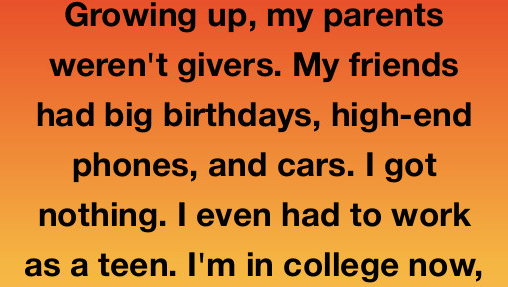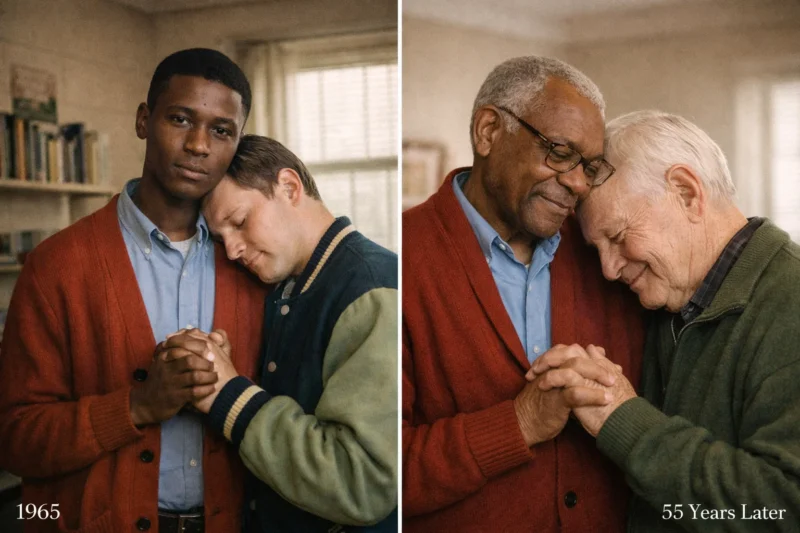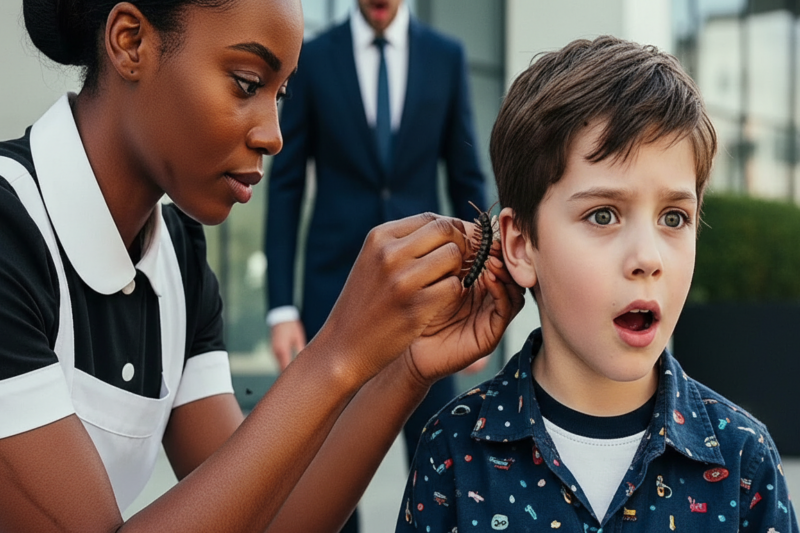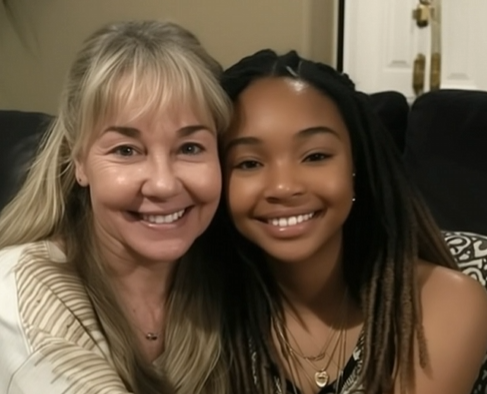As a child, my parents rarely offered gifts. My friends enjoyed lavish birthday celebrations, sleek smartphones, and shiny cars, while I received little. I worked through my teenage years to support myself. Now in college, I face overwhelming student debt. My parents allowed me to stay with them to ease the burden. One evening, they stepped out, and while tidying their home, I discovered a thick envelope hidden deep in my father’s drawer.
I hesitated to open it, torn between respect and curiosity. Eventually, curiosity won. Inside, I found old photographs, faded documents, and a handwritten letter addressed to “Lucas”—my name. The handwriting wasn’t my parents’.
I settled on the floor, flicked on the bedside lamp, and began reading.
“Dear Lucas,
If this letter is in your hands, the moment of truth has arrived. We kept certain truths from you, not to harm, but to shield you. Your life was meant for a different path…”
My pulse quickened. What could this mean? The letter revealed a man named Carlos—my biological father. It said my parents had adopted me as an infant after my birth parents faced dire circumstances, and Carlos entrusted me to them in a desperate act.
Shock anchored me to the spot. My life felt like a fabrication. Memories surfaced—my mother’s hesitation when asked about my baby photos, my father calling me “kid” instead of “son” when he thought I wasn’t listening.
I sat, letter in hand, grappling with the revelation. For a moment, clarity emerged. Perhaps their reserved nature—the sparse birthdays, the lack of gifts—stemmed from feeling I wasn’t fully theirs.
Yet, they had taken me in. They provided shelter, food, and supported my education, in their way. Questions swirled, demanding answers.
When my parents returned that night, I sat at the kitchen table, the letter before me. They froze upon seeing it.
“You found it,” my mother whispered.
They didn’t deny it. My father sat heavily and nodded. “We planned to tell you, but time slipped away.”
“Is it true?” I asked.
“Yes,” my mother replied gently. “Carlos, your father, was a good man caught in dangerous times.”
They shared the full story. Carlos had fought corruption in a South American underground movement. When the situation became perilous, he smuggled me to safety with friends—my adoptive parents.
I expected anger, but instead, understanding settled in. The distance, the quiet birthdays, the silences—it all made sense. It didn’t erase the hurt, but it grounded it in reality.
A week later, thoughts of Carlos consumed me. Was he alive? I resolved to find out.
I worked late shifts at a diner, saving tips to purchase a DNA test. I uploaded the results to ancestry websites. Months passed before a match appeared—a second cousin from Ecuador. I messaged cautiously, asking about a man named Carlos, likely in his late fifties.
Their response was swift: “Carlos is my uncle. He’s alive but has been missing for over twenty years.”
Missing?
They sent a grainy photo from decades ago, showing a man holding an infant—me.
A fire ignited within. Despite my debts and college struggles, I had to go. The urge was undeniable.
I saved every penny, working extra shifts, selling my gaming console and old textbooks. Friends called me consumed. Perhaps they were right.
Nine months later, I booked a one-way ticket to Quito, Ecuador.
I left my parents a note and a copy of the letter, avoiding their inevitable objections.
In Quito, the humid air greeted me. My cousin, Mateo, met me at the airport. His English was limited, but my halting Spanish and Google Translate bridged the gap.
He drove me to a mountain village where Carlos had grown up. I stayed in Mateo’s home, surrounded by chickens, weathered wood, and coffee plants—a serene contrast to my chaotic life.
We asked locals about Carlos. Many remembered him as “el valiente”—the brave one. Some believed he’d died; others thought he’d fled to Colombia.
As hope waned, an elderly man approached me. He recalled a traveler matching Carlos’s description passing through a decade ago—quiet, limping, with weary eyes, seeking forgiveness.
He directed us to a monastery in the hills.
The next morning, we hiked a grueling path to a stone building nestled among clouds, where bells chimed softly.
A monk greeted us. When I showed him the photo, his eyes flickered with recognition.
“He speaks little,” the monk said. “But he’s here.”
We crossed the courtyard, and there he was—an older man with a scruffy beard, sweeping the ground. Our eyes met, and an unspoken connection sparked.
“Lucas?” he whispered in clear English.
My throat tightened. I nodded.
Tears streamed down his face. “I prayed every day to see you again.”
We sat beneath a tree, talking for hours. He shared his story—his efforts to protect me, his regret for leaving, his years of atonement through helping others.
“I never stopped loving you,” he said.
I believed him.
That night, I stayed at the monastery. We shared simple meals, laughed, and cried. I sent a photo of us to my adoptive parents. My mother replied instantly: “He looks like you.”
The future remained uncertain—debts lingered, plans unclear—but I felt whole.
Before I left, Carlos gave me a small box. “For your future,” he said.
Inside was nearly ten thousand U.S. dollars, saved from his work and aid to others. “I knew you’d come,” he said.
I wept.
Back home, I used the money to ease my tuition burden. I began working with an organization connecting adopted children with their birth families.
At a small event, sharing my story, a woman approached nervously. “My daughter was adopted,” she said. “She’s scared to search for her birth mother. Is it worth it?”
I smiled. “Finding your roots can light the way forward.”
We embraced, both in tears.
A year later, I graduated. Carlos attended, as did my adoptive parents. Tension gave way to handshakes, then hugs.
My adoptive father placed a hand on Carlos’s shoulder. “Thank you for giving us a good son.”
Carlos nodded. “Thank you for raising him.”
Watching the two men who shaped me, I realized family transcends blood. It’s who stays, who loves through the hard times.
Now, I’m a counselor for teens in foster care, sharing my story when they’re ready. Not every ending is perfect, but some are enough.
If you’re searching for where you belong, keep going. The truth may sting, but it can also liberate.
Life weaves unexpected paths. Answers hide in old letters, dusty drawers, or distant monasteries. Follow your heart, stay compassionate, and ask the tough questions—you’ll find your way.
If this story resonates, share it with someone who needs it.
Give it a like to spread its message.
Your story is still unfolding.




